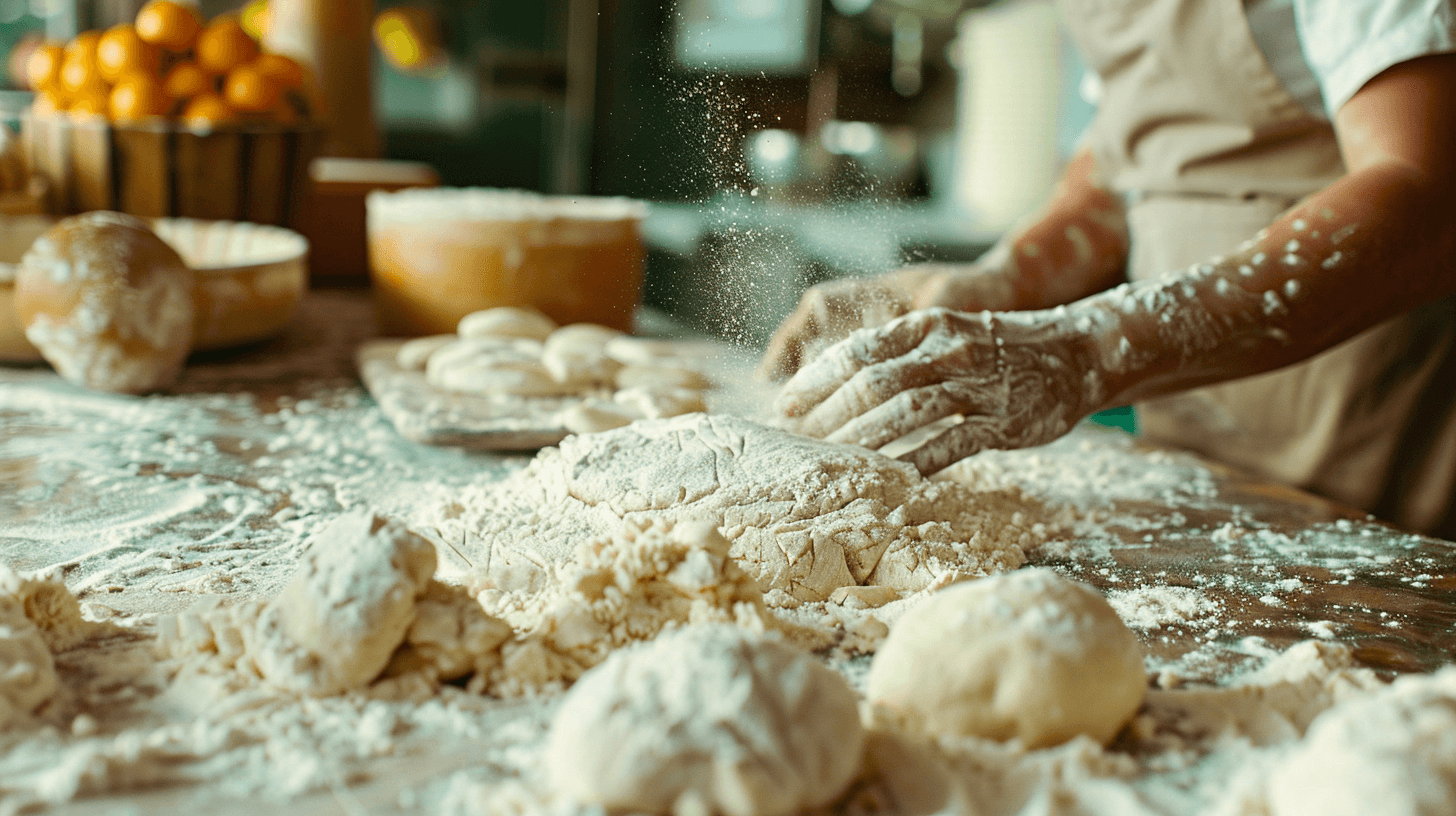Understanding Quality Flour in Turkey: A Comprehensive Guide
Turkey holds a significant place in agriculture, being one of the world's leading producers of various crops, including wheat. Flour, a staple ingredient in Turkish cuisine, is vital for making traditional dishes. This article explores what constitutes quality flour in Turkey, its types, key characteristics, and its role in Turkish cuisine.
The History of Flour Production in Turkey
Early History and Traditional Methods
The history of flour production in Turkey dates back to ancient times. Traditional methods involved grinding wheat using stone mills, a practice that has been passed down through generations. These methods were labor-intensive but produced high-quality flour known for its superior taste and texture. The process often included sieving the flour through hand-woven silk sieves, ensuring the finest flour for making delicate pastries and bread.
Evolution of Flour Production Techniques
With the advent of technology, flour production in Turkey evolved significantly. The introduction of mechanical mills in the late 19th and early 20th centuries revolutionized the industry. These new milling techniques increased production capacity and efficiency, allowing for more consistent flour quality and a broader range of flour types. This period also saw the establishment of many of the large flour mills that are still in operation today.
Modern Advancements in the Turkish Flour Industry
Today, Turkey's flour industry is highly advanced, utilizing state-of-the-art milling technologies. Modern mills incorporate automated systems for grinding, sifting, and packaging, ensuring high standards of quality and hygiene. These advancements have positioned Turkey as one of the leading exporters of flour globally, with Turkish flour being highly regarded for its quality and consistency.
Types of Flour Produced in Turkey
Wheat Flour
Wheat flour is the most commonly used flour in Turkey, available in various forms:
White flour: Milled from the endosperm of wheat grains, white flour is refined and commonly used for making bread, pastries, and other baked goods. Its fine texture and neutral flavor make it a versatile choice in Turkish kitchens.
Whole wheat flour: This flour includes the bran and germ, providing a higher fiber content and richer flavor. It is often used for healthier baking options, adding a nutty taste and denser texture to breads and pastries.
Durum wheat flour: Made from hard durum wheat, this flour is ideal for making pasta and certain types of bread due to its high protein content. Durum wheat flour gives Turkish pasta and breads their characteristic firmness and chewiness.
Specialty Flours
Corn flour: Used in various regional dishes, corn flour is known for its distinct flavor and is often used in gluten-free cooking. It is a staple in many Turkish recipes, especially in regions where corn is a primary crop.
Rye flour: Popular in certain regions, rye flour is used to make dense, flavorful bread. Rye bread is a traditional Turkish staple, especially in areas with a history of rye cultivation.
Spelt flour: An ancient grain, spelt is used as a healthier alternative to wheat flour. It offers a slightly sweet, nutty flavor and is often used in artisanal baking.
Gluten-free options: Various gluten-free flours, including rice flour, almond flour, and chickpea flour, are available to cater to dietary needs. These flours are becoming increasingly popular as more people adopt gluten-free diets.
Key Characteristics of Quality Flour
Purity and Additives
Quality flour should be free from additives and preservatives. Pure flour maintains the natural flavors and nutritional benefits of the grain. Additives can alter the taste and nutritional profile of the flour, making it less desirable for those seeking a natural product.
Protein Content
The protein content in flour is crucial for baking. High-protein flour, such as bread flour, provides the necessary gluten structure for bread, while lower-protein flour is suitable for pastries and cakes. Protein content affects the elasticity and texture of the dough, which in turn influences the final product.
Grinding and Milling Techniques
Traditional stone grinding retains more nutrients and provides a distinct texture, while modern milling techniques offer consistency and efficiency. Both methods have their advantages, and the choice depends on the desired flour characteristics. Stone-ground flour is often preferred for its richer flavor and higher nutritional content, while modern milling produces a finer, more uniform product.
Freshness and Storage
Freshness significantly impacts flour quality. Fresh flour has a better flavor and nutritional profile. Proper storage, in a cool, dry place, helps maintain its quality over time. Flour should be stored in airtight containers to prevent exposure to moisture and pests, which can degrade its quality.
Major Flour Brands and Producers in Turkey
Overview of Leading Brands
Turkey is home to several renowned flour brands that have earned a reputation for quality and reliability. Some of the leading brands include:
Ulusoy Un: Established in 1989, Ulusoy Un is one of the largest flour producers in Turkey. The company is known for its high-quality wheat flour, which is exported to numerous countries.
Eksun (Sinangil): Eksun, operating under the brand Sinangil, is one of Turkey's leading flour producers. Established in 1963, Eksun has built a reputation for quality and innovation, producing a wide range of flours to meet diverse baking requirements.
Eflani Un: Founded in 1996, Eflani Un has grown from a local mill into a premier flour producer in Turkey. With a dedication to quality, innovation, and consistency, Eflani Un offers a range of flour products that meet the diverse needs of both domestic and international markets.
Eriş Un: With a history dating back to 1974, Eriş Un is a key player in the Turkish flour industry. They produce a wide range of flours, including specialty flours like rye and corn flour.
Quality Assurance and Certifications
High-quality flour producers in Turkey adhere to strict quality control practices and hold various certifications to ensure their products meet international standards. Some important certifications to look for include:
ISO 22000: This certification ensures that the company follows stringent food safety management systems.
HACCP (Hazard Analysis Critical Control Points): This system identifies and manages food safety risks, ensuring the production of safe and high-quality flour.
BRC (British Retail Consortium): This global standard for food safety certifies that the flour meets high hygiene and safety standards.
The Role of Quality Flour in Turkish Cuisine
Traditional Bread and Pastries
Flour is a cornerstone of Turkish cuisine, used to make a variety of traditional breads and pastries:
Simit: A popular street food, simit is a circular bread encrusted with sesame seeds. Its crisp crust and soft interior make it a beloved snack across Turkey.
Pide: Often referred to as Turkish pizza, pide is a flatbread typically topped with cheese, meat, and vegetables. The quality of the flour used significantly affects its texture and taste.
Baklava: This iconic Turkish dessert features layers of thin pastry filled with nuts and sweetened with syrup or honey. The flour used for the pastry layers must be of high quality to achieve the delicate, flaky texture.
Modern Uses of Flour in Turkish Cooking
While traditional recipes still dominate Turkish cuisine, modern chefs are increasingly experimenting with flour in contemporary dishes and fusion cuisine. High-quality flour is essential for making:
Gözleme: A savory Turkish flatbread stuffed with various fillings such as spinach, cheese, and meat.
Künefe: A dessert made with shredded pastry dough, cheese, and sweet syrup, showcasing the versatility of Turkish flour in both sweet and savory dishes.
Tips for Selecting Quality Flour in Turkey
Reading Labels and Understanding Ingredients
When selecting flour, it's important to carefully read the labels and understand the ingredients. Look for:
Type of flour: Ensure that the flour type matches your baking needs, whether it's all-purpose, whole wheat, or specialty flour.
Additives: High-quality flour should be free from additives and preservatives.
Protein content: Depending on what you're baking, check the protein content to ensure it's suitable for your recipe.
Trusted Retailers and Markets
To buy quality flour in Turkey, consider purchasing from:
Local markets: These often offer fresh, locally milled flour that supports regional farmers.
Specialty food stores: These stores typically carry a range of high-quality flours, including organic and gluten-free options.
Online retailers: Many reputable brands sell their products online, providing convenience and a wider selection.
Price vs. Quality
While it might be tempting to choose the cheapest option, investing in high-quality flour can significantly impact the taste and texture of your baked goods. Balance cost with quality by considering the flour's source, milling process, and any certifications it holds.
Challenges and Future of Flour Production in Turkey
Environmental Concerns
Sustainable farming practices are becoming increasingly important in Turkey's flour production industry. Concerns include:
Soil health: Overuse of chemical fertilizers can degrade soil quality, affecting crop yields and flour quality.
Water usage: Efficient water management practices are crucial in wheat farming to ensure long-term sustainability.
Technological Advancements
Innovations in flour production are helping Turkish mills maintain high standards while increasing efficiency. Advancements include:
Automated milling: Modern mills use automation to ensure consistent quality and reduce production costs.
Eco-friendly practices: Some mills are adopting green technologies to minimize their environmental impact, such as using renewable energy sources and reducing waste.
Market Trends
Current trends and consumer preferences are shaping the future of flour production in Turkey:
Health-conscious choices: There is a growing demand for whole grain, organic, and gluten-free flours as consumers become more health-conscious.
Artisanal baking: The popularity of artisanal and homemade baking is driving demand for high-quality, specialty flours.
Conclusion
Quality flour is integral to Turkish cuisine, influencing the taste and texture of traditional breads, pastries, and modern dishes. By understanding the history, types, and characteristics of flour produced in Turkey, consumers can make informed choices that enhance their cooking and baking experiences. Exploring different types of Turkish flour can lead to discovering new flavors and textures, enriching the culinary journey.


